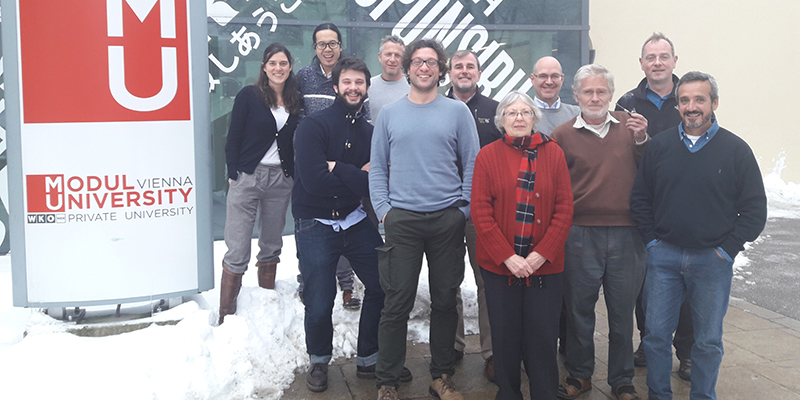Kick-off for Indigenous Communities, Land Use and Tropical Deforestation (INCLUDE)
February 23, 2017
Graziano Ceddia and Dimitris Christopoulos, Associate Professors at the Department of Public Governance and Sustainable Development, recently held the kickoff of their five-year project ‘’Indigenous Communities, Land Use and Tropical Deforestation (INCLUDE)’’. This project is funded through the European Research Council Consolidator Grant Scheme, and runs from November 2016 until October 2021.
The project will look at the problem of deforestation in the Argentinean dry Chaco in the province of Salta. The Chaco Salteño is part of the Great American Chaco, the second largest tropical forest in the American continent after the Amazon, which is experiencing one of the fastest deforestation rates in the world - on average about two football fields per minute over the period 1970-2015. The region represents an important agricultural frontier with over 6 million hectares of forest left, and hosts significant ethnic and cultural diversity, including both ‘criollos’, small scale livestock farmers of European descent, and indigenous peoples.
The guests for the kick-off included well-known anthropologists John Hillary Palmer, who lives in a community of the indigenous Wichi people in the province of Salta, and Prof. Jeffrey Johnson of the University of Florida. The meeting resulted in a detailed work plan for the next three years, using a ‘’World Café’’ approach to generate ideas using timing, methodology, data collection, feasibility, threats and alternatives.
‘’The two-day kick-off meeting has definitely helped my collaborators and me to clarify many points and to prepare a working plan. Although it was strenuous at times, I enjoyed every little bit of it. Besides working together, I had the great pleasure to get to know everyone a little better on a personal level. I hope there will be the time and opportunities to keep knowing each other and maybe working together again in the future,’’ says Graziano Ceddia.
The team has created a project website, which will be routinely updated with research progress. The first post is already online providing more information about the Chaco province.





